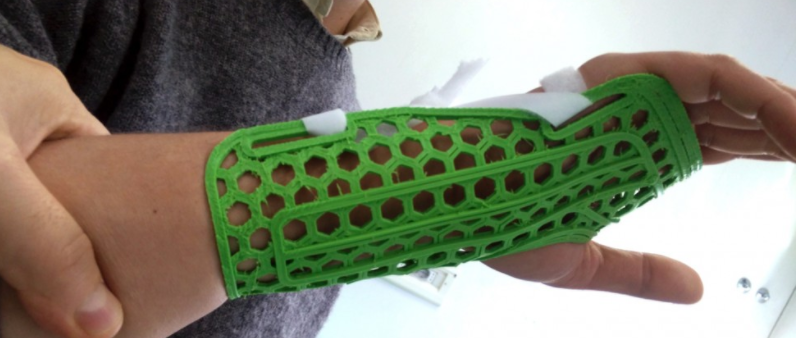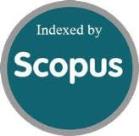A Cloud Information Platform for 3D Printing Rehabilitation Devices
Keywords:
3D printing, rehabilitation devices, splint, cloud, information platformAbstract
Due to the problems of current population aging, occupational injuries and traffic accidents have led to an increasing number of elder people who are physically disabled in Taiwan. These persons, mostly seek medical treatment from medical institutions to help restore them to their premorbid level. Therefore the number of patients who go to medical institutions is gradually increasing and the splinting is largely applied in the medical cares. 3D printing technology has been widely used in the medical industry in recent years, especially in the development of rehabilitation devices. Up until now, to produce the customized splint requires either face to face communication or messaging software by relevant parties. Due to the complexity of the medical process, it is often time-consuming for occupational therapists to discuss the medical records with the splint design engineers via the above mentioned means. The other difficulty is that data management becomes a real problem. Medical communication and information management are thus the most urgent issues that need to be investigated. In this study, we applied the information technology and cloud-based technology to design a simple and user-friendly web-based interface for making 3D printing splint. This web-based interface utilizes cloud-based technology to provide an information platform for communication and co-management between the relevant stakeholders. The aim of this study is to make system management, retrieving patients’ information and browsing 3D graphics be more convenient for users, and thus to improve the efficiency and effectiveness of producing splints based on the proposed system.
References
B. R. Bryant and P. C. Seay, “The technology-related assistance to individuals with disabilities act: relevance to individuals with learning disabilities and their advocates,” Journal of Learning Disabilities, vol. 31, no. 1, pp. 4-15, January 1998.
E. E. Fess, “A history of splinting: to understand the present, view the past,” Journal of Hand Therapy, vol. 15, no. 2, pp. 97-132, April 2002.
B. M. Coppard and H. Lohman, Introduction to splinting-e-book, Elsevier Health Sciences, 2013.
T. H. Huang, C. K. Feng, Y. W. Gung, M. W. Tsai, C. S. Chen, and C. L. Liu, “Optimization analysis of thumbspica splint design,” Master’s thesis, Department of Rehabilitation Science and Technology, National Yang-Ming University, 2005.
F. S. Koopman, M. Edelaar, R. Slikker, K. Reynders, L. H. V. van der Woude, and M. J. M. Hoozemans, “Splinting the hand and upper extremity: principles and process,” Lippincott Williams & Wilkins, Baltimore, MD, 2003.
C. L. Chen, Y. L. Teng, S. Z. Lou, C. H. Lin, F. F. Chen, and K. T. Yeung, “User satisfaction with orthotic devices and service in Taiwan,” PlOS ONE, vol. 9, no. 10, October 2014.
3D Printing Industry (3DPI), “WASP: saving the world with 3D printed splints & cranial Implants,” https://3dprintingindustry.com/news/wasp-saving-the-world-with-3d-printed-splints-cranial-implants-49019/, May 14, 2015.
C. W. Yang and M. T. Liu, “Mobile nursing information system with learning-on-demand services at Taichung veterans general hospital,” Proc. Computer, Consumer and Control (IS3C), 2012 International Symposium on IEEE Press, June 2012, pp. 618-621.
J. Tian, J. Xue, Y. Dai, J. Chen, and J. Zheng, “A novel software platform for medical image processing and analyzing,” IEEE Transactions on Information Technology in Biomedicine, vol. 12, no. 6, pp. 800-812, May 2008.
T. Doel, D. I. Shakir, R. Pratt, M. Aertsen, J. Moggridge, E. Bellon, and S. Ourselin, “GIFT-Cloud: a data sharing and collaboration platform for medical imaging research,” Computer Methods and Programs in Biomedicine, vol. 139, pp. 181-190, February 2017.
M. Umair and W. S. Kim, “An online 3D printing portal for general and medical fields,” Proc. Computational Intelligence and Communication Networks (CICN), 2015 International Conference, IEEE Press, March 2015, pp. 278-282.
B. Laurel and S. J. Mountford, “The art of human-computer interface design,” Addison-Wesley Longman Publishing Co., Inc., 1990.
J. W. LI, “A study on the user interface for hand-held products: PDA as example,” Master’s thesis, Department of Design, DY University, 2003.
G. Booch, “The unified modeling language user guide, Pearson Education India,” 2005.
W. D. Shen, “The campus property management system-analysis, design and implementation using UML,” Master’s thesis, Department of Computer Science and Information Engineering, Tamkang University, 2008.

Published
How to Cite
Issue
Section
License
Submission of a manuscript implies: that the work described has not been published before that it is not under consideration for publication elsewhere; that if and when the manuscript is accepted for publication. Authors can retain copyright in their articles with no restrictions. is accepted for publication. Authors can retain copyright of their article with no restrictions.
Since Jan. 01, 2019, AITI will publish new articles with Creative Commons Attribution Non-Commercial License, under The Creative Commons Attribution Non-Commercial 4.0 International (CC BY-NC 4.0) License.
The Creative Commons Attribution Non-Commercial (CC-BY-NC) License permits use, distribution and reproduction in any medium, provided the original work is properly cited and is not used for commercial purposes.



